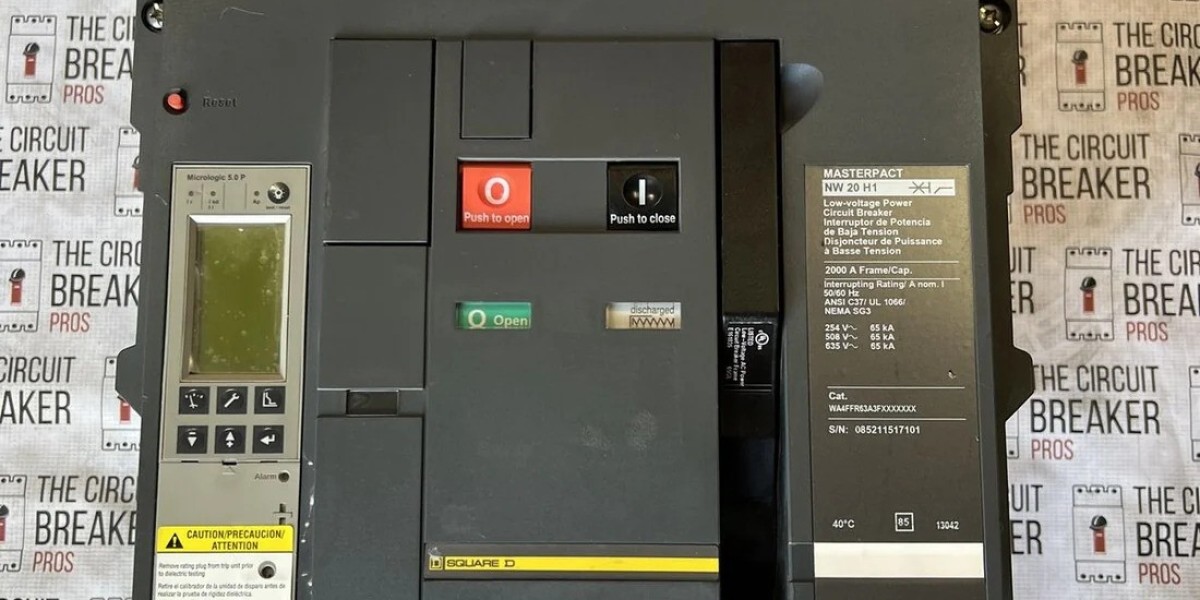Types of Circuit Breaker
1. Thermal Circuit Breakers
Thermal circuit breakers use a bimetallic strip that bends with excessive current, causing the contacts to separate and interrupt the circuit. They are commonly used in residential applications due to their affordability and reliability.
2. Magnetic Circuit Breakers
Magnetic circuit breakers operate on the principle of electromagnetism. When an overload occurs, the magnetic field generated by the excessive current trips the breaker, preventing any further flow of electricity. These breakers are commonly found in industrial settings.
3. Hydraulic-Magnetic Circuit Breakers
Hydraulic-magnetic circuit breakers combine the advantages of thermal and magnetic circuit breakers. They use a hydraulic mechanism to trip the breaker in response to overloads and short circuits, ensuring accurate and reliable protection.
4. Electronic Circuit Breakers
Electronic circuit breakers employ advanced electronic components to monitor and control the flow of electrical current. They offer enhanced precision, adjustable trip settings, and additional features such as remote monitoring.
Understanding Circuit Breaker Ratings
Circuit breakers have various ratings that determine their capabilities and compatibility with specific applications. Understanding these ratings is crucial when selecting the right circuit breaker for your needs.
Voltage Rating
The voltage rating indicates the maximum voltage that the circuit breaker can safely handle. It is essential to choose a circuit breaker with a voltage rating that matches or exceeds the system's voltage.
Current Rating
The current rating specifies the maximum current that the circuit breaker can carry continuously without tripping. It is vital to select a circuit breaker with a current rating appropriate for the load it will be protecting.
Interrupting Capacity
The interrupting capacity refers to the maximum level of fault current that a circuit breaker can safely interrupt without causing damage. It is crucial to choose a circuit breaker with an interrupting capacity suitable for the system's fault current levels.
Factors to Consider When Buying Circuit Breakers
When purchasing circuit breakers, there are several important factors to consider to ensure the right fit for your specific requirements.
1. Application
Consider the intended application of the circuit breaker. Different applications may have varying demands in terms of voltage, current, and environmental conditions. For example, residential, commercial, and industrial applications have different needs and regulations.
2. Compatibility
Ensure that the circuit breaker is compatible with the electrical system in which it will be installed. Consider factors such as the type of circuit, the wire size, and the overall electrical configuration.
3. Safety Features
Look for circuit breakers that offer additional safety features such as arc fault detection, ground fault protection, and short circuit protection. These features enhance the overall safety of the electrical system.
4. Cost
Evaluate the cost of the circuit breaker and compare it with your budget. While it's important to consider affordability, prioritize quality and reliability to ensure long-term performance and safety.
Where to Buy Circuit Breakers Near Me
When it comes to purchasing circuit breakers, there are several options available to consumers.
1. Local Hardware Stores
Local hardware stores often carry a selection of circuit breakers suitable for residential and small-scale applications. These stores offer the advantage of immediate availability and the ability to physically examine the products.
2. Electrical Supply Stores
Electrical supply stores specialize in a wide range of electrical components, including circuit breakers. They offer a broader selection and can provide expert advice on selecting the right breaker for your specific needs.
3. Online Retailers
Online retailers provide convenience and accessibility, allowing you to browse and purchase circuit breakers from the comfort of your home or office. Ensure that you choose a reputable retailer with good customer reviews and reliable shipping options.
Circuit Breaker Prices
The cost of circuit breakers can vary depending on various factors.
1. Factors Affecting Circuit Breaker Prices
Type and Brand: Different types of circuit breakers and reputable brands may have varying price ranges.
Ratings: Circuit breakers with higher voltage and current ratings typically cost more.
Features: Circuit breakers with advanced features such as remote operation or integrated monitoring systems tend to be more expensive.
2. Price Range for Different Types of Circuit Breakers
Thermal Circuit Breakers: Prices typically range from $5 to $50, depending on the current rating and brand.
Magnetic Circuit Breakers: Prices can range from $20 to $200, depending on the current rating and interrupting capacity.
Hydraulic-Magnetic Circuit Breakers: Prices generally range from $50 to $500, depending on the current rating and features.
Electronic Circuit Breakers: Prices vary significantly based on the complexity of features and can range from $100 to $1000 or more.
Benefits of Using Circuit Breaker For Sale
Using circuit breakers offers several advantages for electrical systems and overall safety.
1. Electrical Safety
Circuit breakers provide protection against electrical hazards such as short circuits, overloads, and ground faults. They help prevent damage to the wiring, appliances, and potential electrical fires.
2. Equipment Protection
By interrupting excessive current flow, circuit breakers safeguard electrical equipment and prevent damage caused by overloads. This helps prolong the lifespan of appliances and reduces repair costs.








